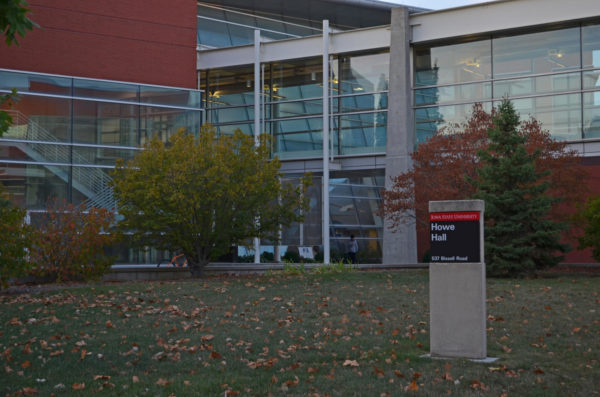State wants review of Iowa nude dancing case
September 29, 2008
DES MOINES (AP) — The state attorney general’s office said Monday it has asked the Iowa Supreme Court to review a lower court’s decision that nude dancing is an art in Iowa.
In August, a Fremont County judge ruled in favor of a nude dancing club owner charged with violating the state’s public indecent exposure law.
Judge Timothy O’Grady said prosecutors failed to prove that Shotgun Geniez in Hamburg wasn’t a theater and therefore it was protected under the law.
The law doesn’t apply to a “theater, concert hall, art center, museum or similar establishments” devoted to the arts or theatrical performances.
Assistant Attorney General Mary Tabor said the state is seeking a review of the judge’s interpretation of the statute.
“The district court found that while this was primarily a strip club, that the theater exemption still applies. We’re just asking for a different interpretation of those exemptions, Tabor said.
Fremont County Attorney Margaret Johnson had charged then-club owner Clarence Judy after a 17-year-old girl climbed up on the stage at Shotgun Geniez and stripped off her clothes in July 2007.
Judge O’Grady acquitted Judy of criminal charges in August.
Tabor said Judy can’t be tried again because of double jeopardy. But if the Supreme Court agrees to hear the case, and interprets the statute differently, it could affect future cases statewide.
Tabor said the high court could deny the state’s request, saying it’s not a case it’s interested in.
“Our first hurdle is to have the court agree to hear the case. Because it is just on the legal basis, sometimes they (justices) are reluctant if it has no practical affect,” Tabor said.
She said the state’s argument is there is a statewide significance with other strip clubs.
“If they have a stage and have lighting, they fall into the theater exemptions. I think minors who come into those facilities aren’t protected as the Legislature envisioned that they should be,” Tabor said.
While the judge’s decision applies only to the Fremont County case and not to other courts, her fear is that strip clubs will say that’s the interpretation that exists.
Tabor said if the Supreme Court doesn’t hear the case, there’s still a lack of guidance, and the issue could go back to the Legislature.
“Our position is the language was interpreted wrongly by the district court. People could ask the Legislature to clarify it,” she said.
At this point, she said, they are waiting to hear from the Supreme Court. There is no timeframe for the court’s decision.
















